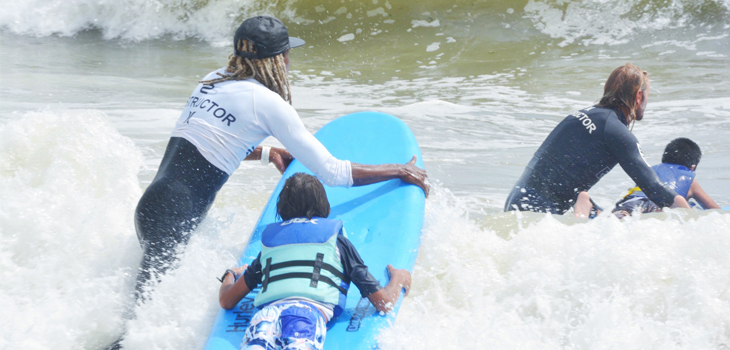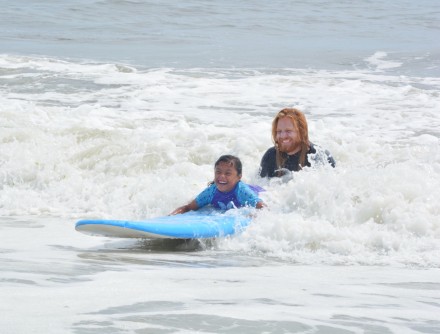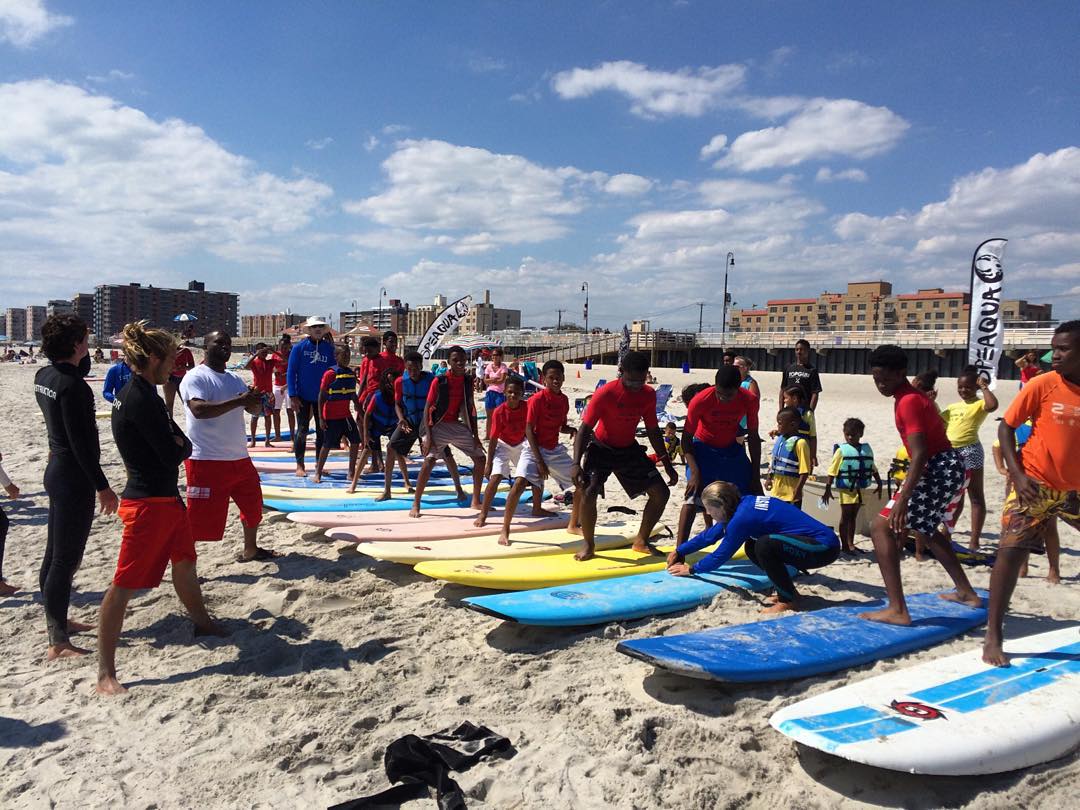
A chorus of delighted yelps followed several Long Beach children as they stood up on surfboards and rode the foamy swells back to their parents waiting on shore.
For families that thought they couldn’t afford surfing lessons, it was a dream realized.
“This is the beginning of his life here in Long Beach,” said Rachel Richter of her son Elias, 7. “You can’t avoid the ocean when you live here.”
As Long Beach prepares to host some of the world’s top surfers at the Quicksilver Pro surfing competition next month, some residents are working to make the sport accessible to a wider range of participants.
Two dozen children from ages 7 to 13 recently participated in one of this summer’s free surfing lessons offered by nonprofit Surf for All, which teaches economically disadvantaged and special-needs students.
Surfer’s Way, another local nonprofit, offers lessons for children with cerebral palsy, autism and hearing or visual impairments.
“They’re made to feel that they can conquer what everyone else can,” founder Elliot Zuckerman, 58, said.
Surf for All started in 2002 when Cliff and his brother Will Skudin joined with Mulvaney to teach five children with autism. Their interest grew from Mulvaney’s son Dan, 24, who has autism. They then expanded to include children with other disabilities and participants from the Wounded Warrior Project.
“We wanted to make it ‘surf for all,’ not just ‘surf for autism,’ ” Mulvaney said.
When Surf for All works with children who have spinal cord injuries or have lost limbs, instructors ride on tandem 12-foot surfboards with the participants, lifting them into a stand to ride a wave.
Representatives of both organizations see surfing growing in appeal among nontraditional participants.
“We taught them the basics and fundamentals, now all they need is a board,” Cliff Skudin said. Used boards, he said, can be inexpensive.
“Surfing is like ice cream. Once you try it, you want it again and again,” Will Skudin said. “It’s a healthy addiction.”



